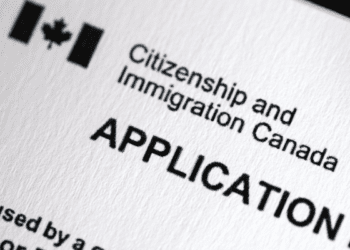November 8, 2012 – In the Financial Post today, MLI’s Philip Cross writes about the CAW-CEP merger. Full column below:
By Philip Cross, Financial Post, November 8, 2012
There’s nothing super about CAW-CEP merger
The past decade has not been kind, to say the least, to unionized workers in the auto, forestry and communications industries. Jobs have plunged and paycheques shrunk in response to the calamitous slump in the U.S. auto and housing markets, the shift to non-unionized auto plants in the southern U.S. and Mexico, and the end of a low dollar. These events presented unions with the opportunity to collect rents (a polite word used by economists for what would be called profiteering if done by a business). Communications workers have had their own problems dealing with the blow dealt by the Internet to established media.
So what is the response of union leaders? To agree last month to merge the Canadian Auto Workers (CAW) and the Communications, Energy and Paperworkers (CEP) unions into a new “Super Union.” Rather than addressing the structural changes in their own industries, the focus of union leaders will be spending 10% of their revenues to expand into other sectors, helping to paper over losses among existing members. Leaders promise the new union also will agitate for political change on the lines inspired by the Quebec students and the Occupy movement, never mind that the Occupy movement disintegrated last winter while the main student union disbanded last weekend. How long will blue-collar workers tolerate the self-indulgent political and ideological grand-standing of their leaders, while watching their own jobs disappear?
These grandiose designs seem destined to fizzle into nothing, just like the One Big Union movement in the 1920s. The One Big Union called itself a “revolutionary industrial union,” railing against profits while expressing solidarity with the Bolsheviks in Russia. As its membership quickly collapsed, the union stayed afloat by operating an illegal lottery in its weekly bulletin, showing an unexpected entrepreneurial flair in finding new ways to fleece its members on top of their union dues. Union leaders today, like CAW president Ken Lewneza in a recent article he wrote in Canadian Business magazine, continue to practice their Big Lie techniques by saying that the labour market is spawning an underclass of poorly paid workers in insecure jobs. The stats clearly say the opposite. Since the recovery began in 2009, the number of self-employed workers has fallen outright, while full-time positions have accounted for over 90% of job growth. As Bank of Canada deputy governor Tiff Macklem recently noted, these are well-paying jobs. Jobs paying less than $800 a week have fallen since 2009, while those paying more have risen 15%. Readers can be forgiven for being confused about the quality of jobs being created. Whenever there is a brief increase in low-quality jobs, unions and the whole left-wing media are out in droves pronouncing a new trend, but then scurry out of sight when the long-term trend to better jobs reasserts itself.
Yes, union jobs pay slightly more on average. However, as noted in The Wall Street Journal last week, workers increasingly understand “the risk of higher union wages and benefits” leading to plant closings and job losses, in the words of Gary Chaison, professor of industrial relations at Clark University. Lewneza said late in September that the auto sector needs “a government that provides the same tools as other countries are doing to preserve this very important industry.” Like right-to-work laws, Ken, which continue to attract auto plants and jobs to the southern U.S.?
The new Super Union wants to stop companies from doing what Caterpillar did, when it closed its London plant and moved to Indiana the moment after the latter adopted right to work. How can you stop companies from moving to more hospitable locations? How do you force a firm to stay open and suffer losses endlessly, if like GM and Chrysler they slide into bankruptcy? And none of this addresses the long-term threat to old-style manufacturing unions from the emergence of new technologies that literally allow customized manufacturing by the consumer. So why are union leaders pursuing the discredited strategy of One Big Union? Probably to give the illusion that the union is doing something, given the CAW showed by caving in to demands for wage concessions in its just-completed round of negotiations that it is powerless to resist accepting the wage standard set by the UAW, undercutting the whole raison d’etre of its existence. And by repeating that they represent 300,000 members, union leaders may get better seating when dining at the public trough.
Last Friday, newswires ran an interesting story of a woman convicted of burglary after she entered houses, cleaned and tidied them up, and then left a bill for $75. She defended her actions by saying this was how she “chose some of her clients.” Union members would be excused if they feel like these clients; presented with an inflated bill for a service they did not expect.
There are hopeful signs of change for the union movement. Conservative MP Pierre Poilieure courageously has introduced a private member’s bill that would end the Rand formula dictating automatic deduction of union dues. The 13,000 economists and policy analysts of the Canadian Association of Professional Employees, the third-largest union in the federal government, resoundingly voted down a proposed 42% hike in union dues. Trust economists to insist on value for money. Dissidents cited the union’s recent signing of a 10-year lease extension for their plush offices in downtown Ottawa, far from where most of their members are located. These offices alone cost $1-million a year, a hefty sum for a union that collects only $5.8-million in dues.
Union president Claude Poirier expressed astonishment that “people attack their own union.” They are not attacking it. They are claiming it back, demanding their leaders serve their members and not some irrelevant ideology. Hopefully, others will do so as well.
Financial Post
Philip Cross is research co-ordinator with the Macdonald-Laurier Institute.




